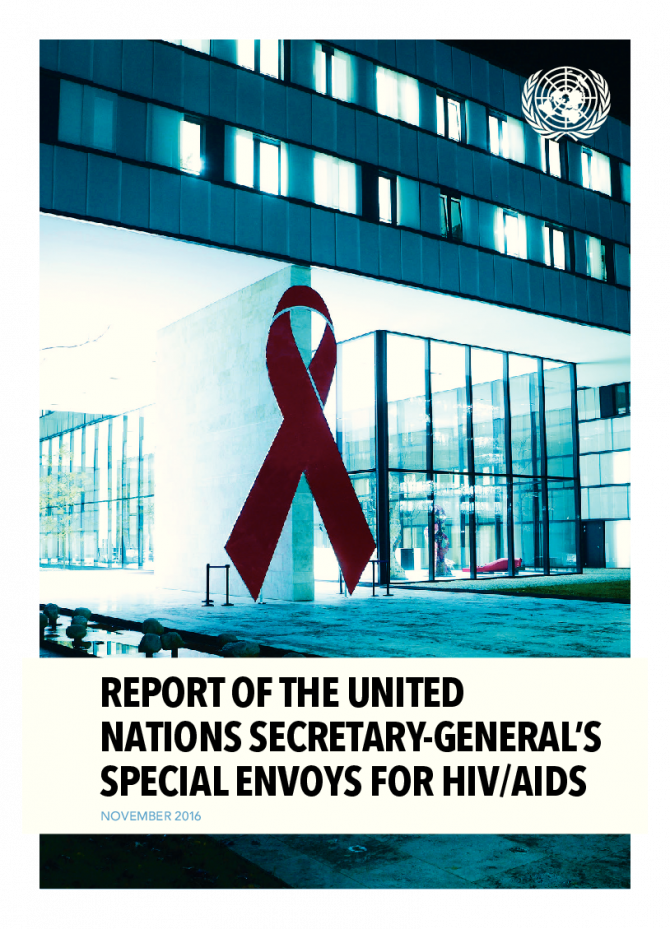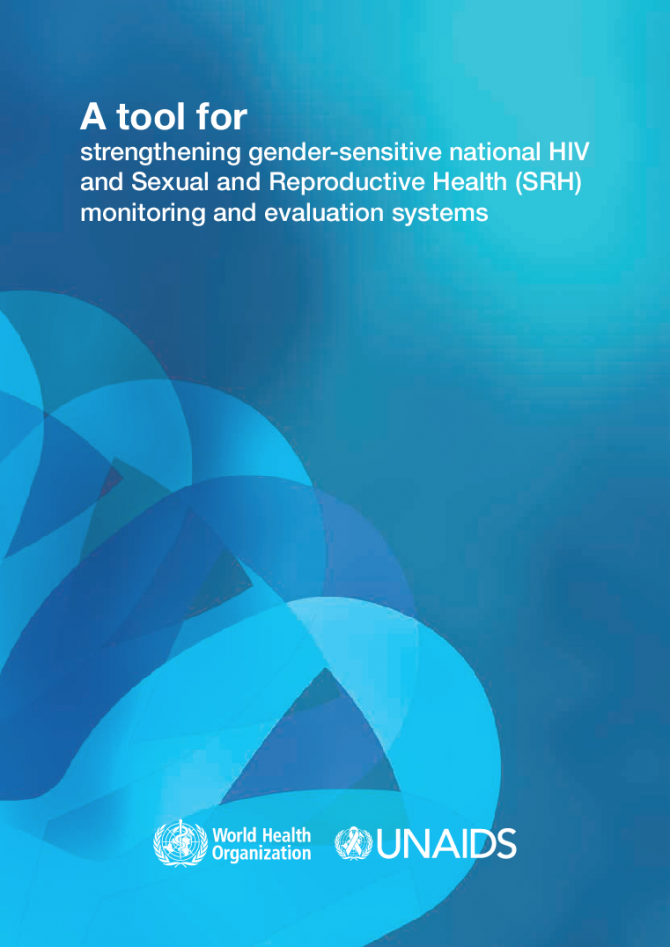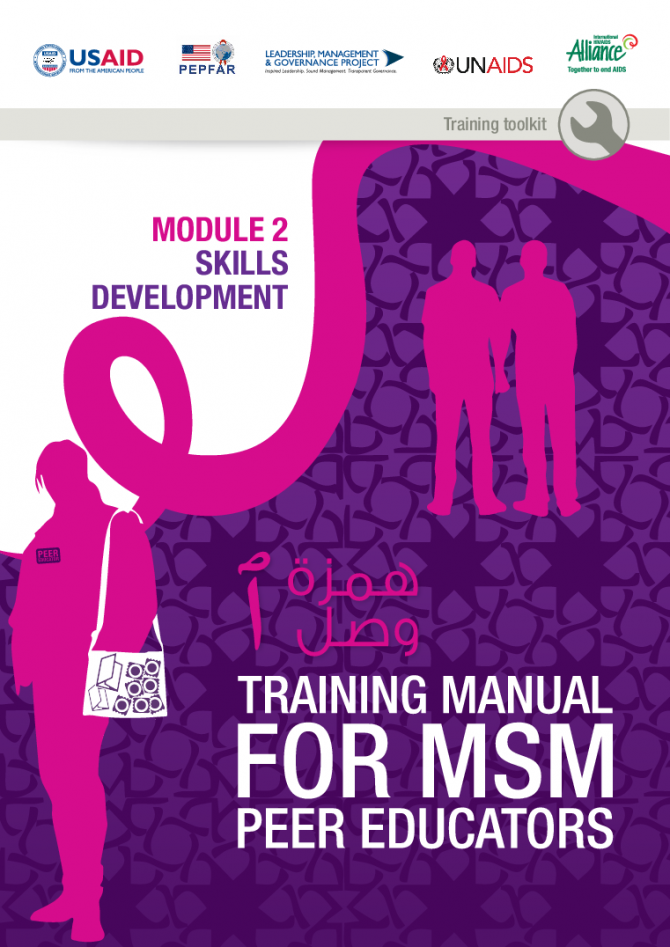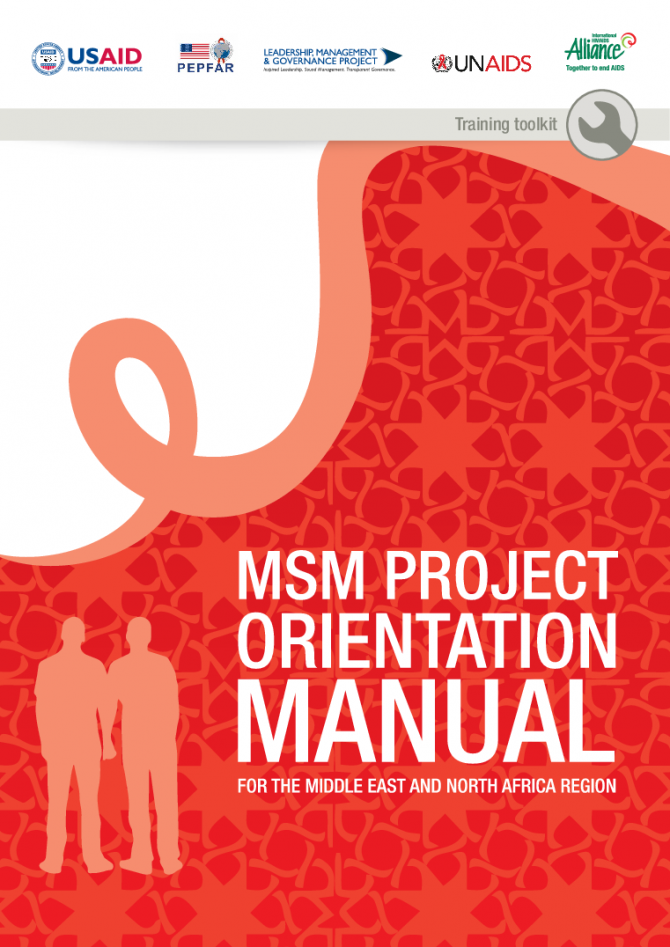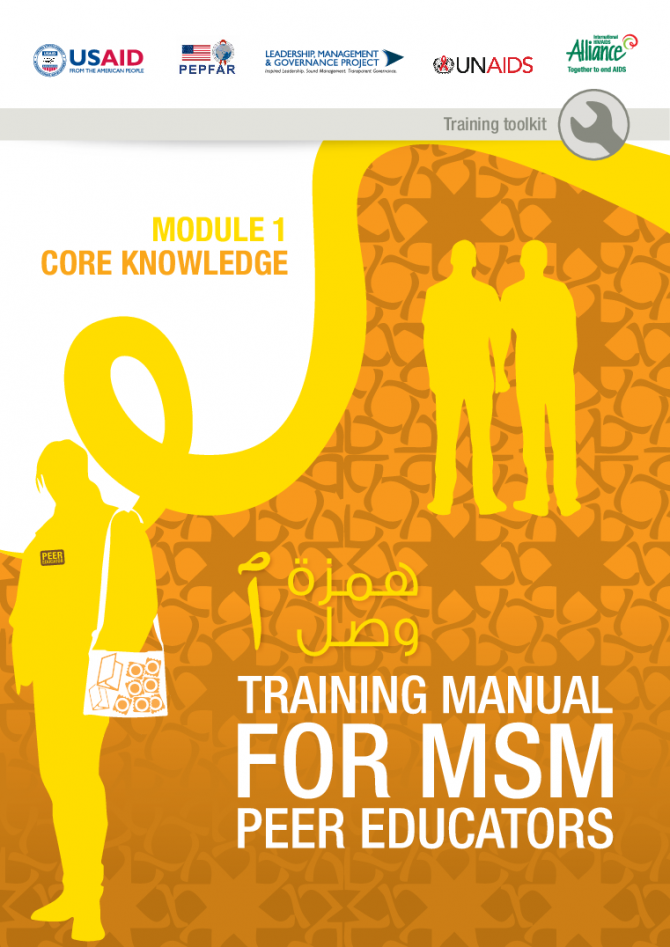Documents
Progress report on the implementation of United Nations Security Council Resolution 1983
01 November 2016
The contribution of United Nations peacekeeping operations to the AIDS responses in a multitude of conflict and post-conflict situations to date underscores the importance of continued engagement by United Nations peacekeeping operations and other United Nations entities as the world endeavours to reach the level of service coverage required to end AIDS as a public health threat by 2030. Progress towards this ambitious goal requires a continuation of what is working well and addressing areas of inconsistency and inefficiency using the latest tools and knowledge on effective HIV responses.
Documents
Report of the United Nations Secretary-General’s Special Envoys for HIV/AIDS, November 2016
01 November 2016
The Special Envoys have played a transformative role in achieving MDG 6 and now putting the response to ending AIDS by 2030 on the Fast-Track. They brought their experience, personal credibility and the legitimacy that they carry as the United Nations Secretary-General’s Special Envoys. They have engaged leaders at all levels and address sensitive political and policy agendas. Together we promote a shared vision of an AIDS-free world.
Documents
A tool for strengthening gender-sensitive national HIV and Sexual and Reproductive Health (SRH) monitoring and evaluation systems
08 December 2016
This tool has been prepared by Karen Birdsall under the leadership of Avni Amin, Department of Reproductive Health and Research, World Health Organization (WHO). Together, WHO and the Joint United Nations Programme on HIV/AIDS (UNAIDS) initiated development of the tool as part of the implementation of the UNAIDS Agenda for Accelerated Country Action for Women, Girls, Gender Equality and HIV in 2009.
Documents
Module 3 Implementation and evaluation — Training manual for MSM peer educators
23 November 2016
The manual was developed to provide planners and managers working with HIV MSM programme prevention and support services with the necessary information to develop sympathetic, evidence-based and comprehensive HIV prevention and support services for MSM in the MENA region. The resource is useful to both experienced programme implementers as well as those who are beginning to plan new HIV prevention and care services for MSM. Read this document in Arabic
Documents
Module 2 Skills development — Training manual for MSM peer educators
23 November 2016
The manual was developed to provide planners and managers working with HIV MSM programme prevention and support services with the necessary information to develop sympathetic, evidence-based and comprehensive HIV prevention and support services for MSM in the MENA region. The resource is useful to both experienced programme implementers as well as those who are beginning to plan new HIV prevention and care services for MSM. Read this document in Arabic
Documents
Project orientation — Training manual for MSM peer educators
23 November 2016
This orientation manual is the first of four volumes of a training toolkit that complement each other. The manual was developed to provide planners and managers working with HIV MSM programme prevention and support services with the necessary information to develop sympathetic, evidence-based and comprehensive HIV prevention and support services for MSM in the MENA region. The resource is useful to both experienced programme implementers as well as those who are beginning to plan new HIV prevention and care services for MSM. Read this document in Arabic
Documents
Module 1 Core knowledge — Training manual for MSM peer educators
23 November 2016
The manual was developed to provide planners and managers working with HIV MSM programme prevention and support services with the necessary information to develop sympathetic, evidence-based and comprehensive HIV prevention and support services for MSM in the MENA region. The resource is useful to both experienced programme implementers as well as those who are beginning to plan new HIV prevention and care services for MSM. Read this document in Arabic
Documents
Fast-Tracking combination prevention
19 October 2015


